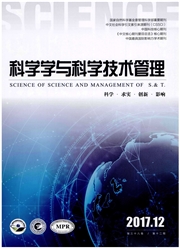

 中文摘要:
中文摘要:
构建了风险承担意愿的视角下知识型员工的地位特征与创新绩效关系的理论模型、运用346个有效知识型员工样本对所提出的研究假设及影响路径进行了检验。结果表明:(1)组织中的正式地位对员工创新绩效具有u型影响;组织中的非正式地位对员工创新绩效具有正向影响。(2)风险承担意愿对员工创新绩效具有正向影响;风险承担意愿在两种个人地位特征与员工创新绩效的关系中均存在中介效应:风险承担意愿在组织中的非正式地位与员工创新绩效之间关系中存在中介效应,它在组织中的正式地位与员工创新绩效之间的中介效应随着正式地位增高而加强。(3)创新支持正向调节风险承担意愿与创新绩效的关系,主管创新支持的调节效应高于组织创新支持。
 英文摘要:
英文摘要:
This research advances the growing body of literature ferent status types and creative performance of the knowledge wo by rke focusing on the relationship between two difrs, and the mediating effect of risk-taking wil- lingness. The authors investigate how informal and formal status types impact creative performance both directly and indirectly through influencing risk-taking willingness. Using data gathered through a survey of 346 knowledge workers in China, we empirically test all the hypotheses. The results show that formal status has a direct, U-shaped effect on creative performance, and informal status has a direct, positive effect on creative performance Risk-taking willingness has found to have positive impact on creative performance. Furthermore, risk-taking willing- ness mediates the relationship between formal status and creative performance, and meanwhile mediates the rela- tionship between informal status and creative performance. However, the positive mediating effect of risk-taking willingness between formal status and creative performance increases while risk-taking willingness increases. When risk-taking willingness reaches a low level, the positive mediating effect of risk-taking willingness between tbrmal status and creative performance turns into insignificant. In addition, support on creativity from organization and su- pervisors have moderated the relationship between risk-taking and creative performance, and the moderating effect of support from organization is much more important than the support from supervisor.
 同期刊论文项目
同期刊论文项目
 同项目期刊论文
同项目期刊论文
 期刊信息
期刊信息
